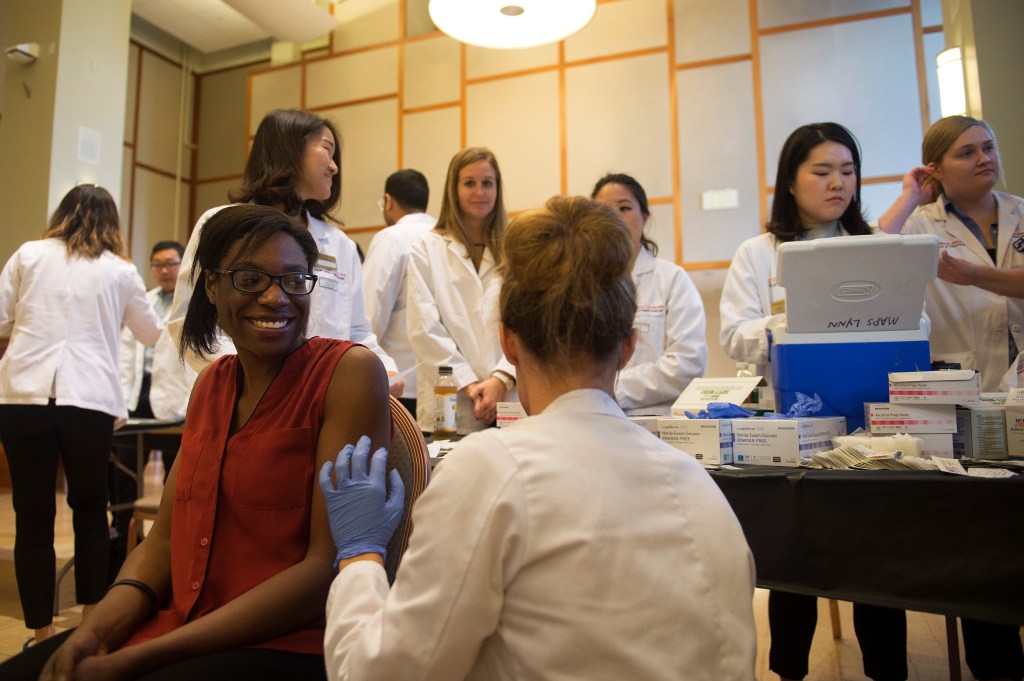Flu shots for students still available amid harsh influenza season

Last week, the Centers for Disease Control and Prevention reported that the flu is still widespread across most of the country. According to the CDC, the predominant strain of flu circulating this year is H3N2, which is often associated with more intense flu seasons and lower vaccine effectiveness.
Amid the harsh flu season, University Health and Counseling Services at Northeastern said it’s not too late for students to get vaccinated on campus. UHCS administered a nearly four-fold increase in flu shots to students in January compared to the same month in 2017, according to executive director Robert Klein, who said he’s been encouraged by students’ response.
UHCS, located on the first floor of the Forsyth building, provides walk-in flu clinics for students on Tuesdays from 4 to 8 p.m., Thursdays from 5 to 8 p.m., Fridays from 8 a.m. to noon, and Saturdays from noon to 4 p.m. Flu shots are free to all Northeastern students.
Faculty and staff members who are enrolled in health plans through Northeastern can also get free flu shots through their doctors’ offices or participating pharmacies, when presenting their health cards, according to Human Resources Management.
The flu virus is spread through the air when people sneeze or talk, or through direct contact with shared surfaces such as door handles, hand rails, and computer keyboards. Mark Douglass, associate clinical professor in Northeastern’s Department of Pharmacy and Health System Sciences, recommended these prevention efforts in addition to getting a flu shot:
- Avoid close and direct contact with others who are sick, and with others if you’re sick
- Cover your nose/mouth when sneezing and coughing
- Wash your hands often with soap and water, or use alcohol-based hand sanitizers as an alternative
- Anti-flu medications are most effective when started within 48 hours of symptom onset and flu diagnosis. It’s important to finish your entire prescription. Do not stop taking medications early if your symptoms subside.





